A Legends of Localization reader named Alex sent in a question about an old game I’ve heard a lot about but never really played myself: Clash at Demonhead for the NES and its Japanese counterpart, Dengeki Big Bang for the Famicom.
In the Japanese version, the man in the cabin asks player-character Bang a question I couldn’t make sense of, and Bang answers something to the effect of “I’m from Famicom”. I certainly get the joke, but the question that sets it up struck me as some sort of obscure reference or something that I just wasn’t getting. I figure if anyone knows the answer, it’s you.
Luckily this text isn’t very far into the game so it was easy to check out:
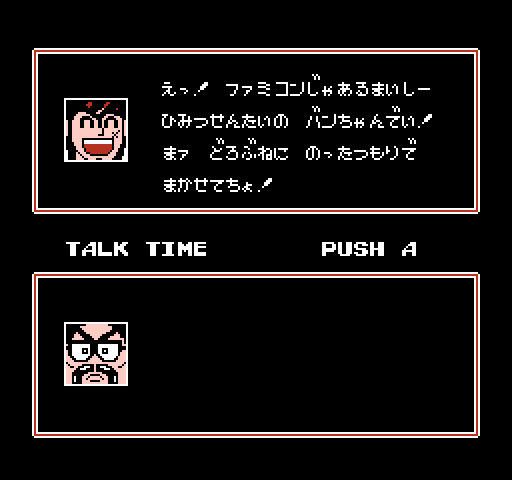 | 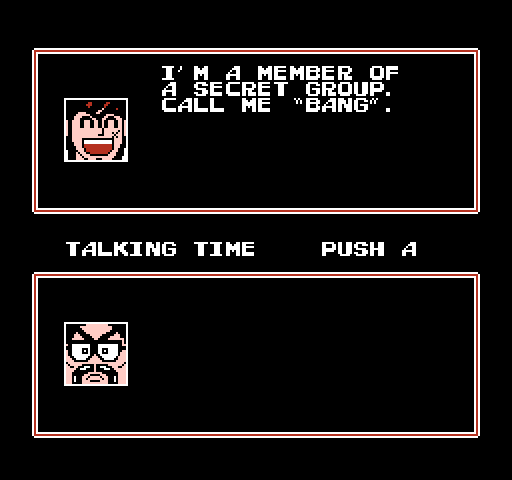 |
| Dengeki Big Bang (Famicom) | Clash at Demonhead (NES) |
And here’s the entire scene side-by-side for comparison:
| Japanese Version (basic translation) | English Version |
| Cabin Guy: Are you the warrior of the legend passed down here in Murbas Village? | Cabin Guy: Please help me! |
| Bang: Wha…?! Don’t be crazy, this isn’t a Famicom game or anything! I’m Bang, a member of a secret unit! You can rest queasy with me on the job! | Bang: I’m a member of a secret group. Call me “Bang”. |
| Cabin Guy: Meet with the hermit. I’m sure he’ll help you! | Cabin Guy: Oh! You should go to the hermit. He’ll be able to give you some special help. |
We can see from this that the Japanese text is quite a bit wordier and has a good amount of humor to it that’s not found in the English text.
The last sentence in Bang’s Japanese line is actually really tough to translate well, it literally means something like “you can count on me like being on a mud boat” and is the comedic opposite of a more common phrase that idiomatically means “you can rest easy with me on the case”.
But most importantly, the answer to Alex’s question is that the Famicom mention in the Japanese scene is actually a little joke about this not being a video game. Hopefully that clears up the confusion.
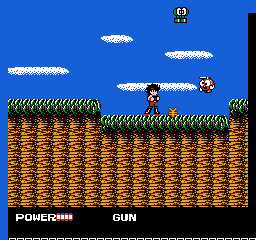 | 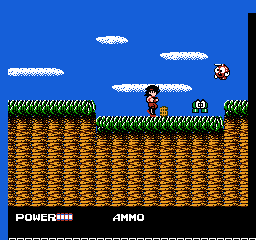 |
| Dengeki Big Bang (Famicom) | Clash at Demonhead (NES) |
While getting to this point in the game I noticed a number of other small localization differences, including obvious graphical changes and less-obvious text changes. I really ought to play through this game sometime and learn more about it for future articles and book material. For now, if you know of any other interesting changes in this game, let me know in the comments!


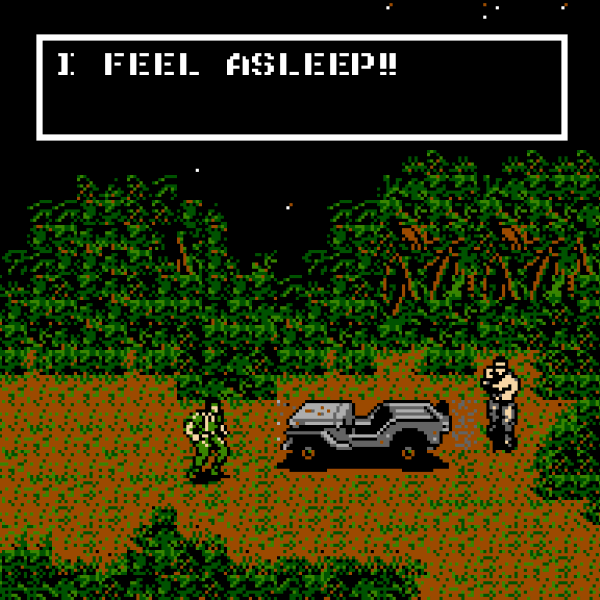

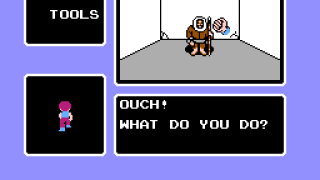
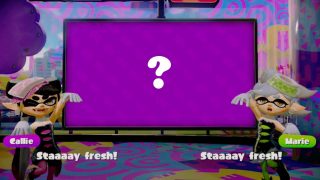
Check-plus on “rest queasy.” That’s good material, that is!
Which said, Clash at Demonhead was always a favourite of mine. If you’re ever keen to fiddle around with retro NES games, it’s a pretty solid choice — at least, until the insultingly bad final “puzzle.”
Haha, that “queasy” thing was just some spur of the moment “oh god I don’t know how to convey this very well in English” desperation. I’m glad it didn’t come across as too dumb 😛
I’ve not heard of this game’s final puzzle but I’ll be on the lookout for it now that I know…
So it’s like people in a movie saying “it isn’t as if we are in a movie” or something.
Yep, exactly. This character’s sarcastic attitude really intrigues me, so I want to play the game more sometime in the near future to see what else he says/how he acts.
“Can’t he just beam up?”
“This is *reality*, Greg.”
Wait, isn’t Clash at Demonhead one of the bands featured in Scott Pilgrim comics?
It is! One of the more obscure gaming references.
Actually, the name of the band is The Clash at Demonhead, a combination of the band The Clash and the game Clash at Demonhead. This, of course, is what moves it from the realm of mere reference and into genuine cleverness.
GUN changed to AMMO, how typical. Remember everyone, we’re Americans, and guns weren’t allowed in games because they could apparently poison our stupid little kid brains into somehow getting ahold of guns, according to some retarded helicopter parent groups. God I hope all those groups are dead and gone by now.
Replace guns and violence with anything remotely sexual that isn’t 1:1 realistic. And now you have today.
Ah yes, the game where the Toastyfrog forums got their name, Talking Time. I really should play Clash at Demonhead some time.
Why is the hiragana ま followed by katakana ァ?
Does it help sell the joke, or is it just a little bit of vocalization?
It’s followed by a small あ/ア, which is pretty normal for someone speaking casually in entertainment like this. I’m not sure why it switches to katakana specifically here, but I see it every so often too. It’s probably just the writer being stylish.